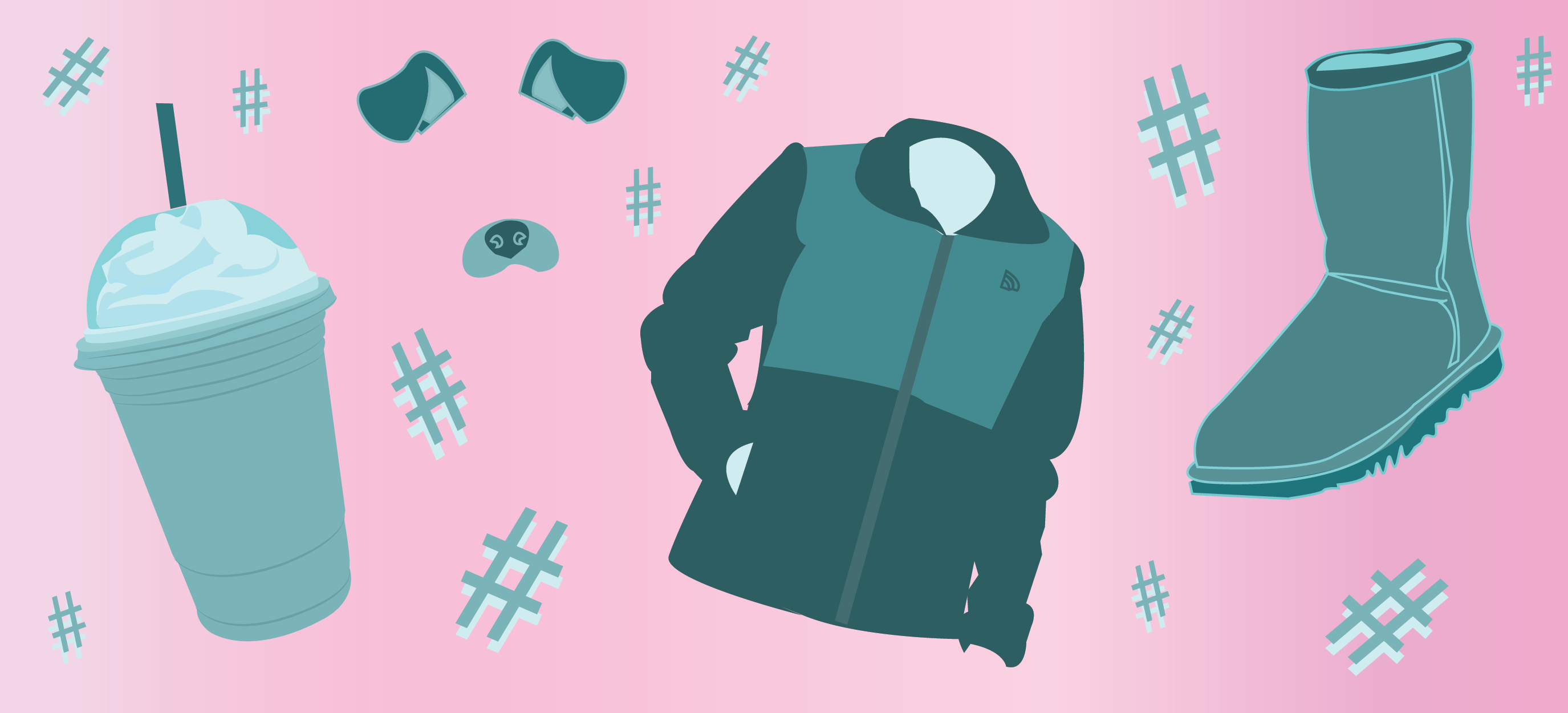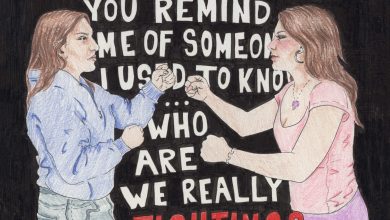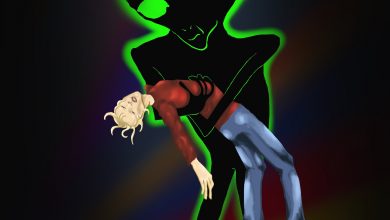The Basic Feminist Bitch

Illustration by Jenny Dodge.
The threat of being labeled a basic bitch lies in wait at the front of the Starbucks line, between racks of North Face jackets and behind a Pinterest board click. Lately, it’s crept into feminist terrain, too, lurking in Tumblr threads about women’s empowerment and riding on the notes of Beyoncé’s “***Flawless.”
While the trivialization of women’s intellectual activities is never a surprise, why has feminism, a movement so typically stigmatized for its disavowal of social norms, fallen under the umbrella of a misogynistic term that epitomizes herd mentality?
The easy answer is that calling feminism “basic” is backlash to the movement’s slow but sure success. In her book “The Beauty Myth,” Naomi Wolf argues that the more legal and material hindrances women overcome, the greater emphasis our culture places on intangible methods of oppression, like beauty standards. In the same way, recent feminist gains in social and political ground under the Obama administration (e.g., first female presidential nominee for a major party, Obergefell v. Hodges, decision to put Harriet Tubman on the $20 bill) could be prompting fierce ideological backlash. Using an epithet like “basic” harms women not by creating a concrete barrier to their success, but by maintaining the historic trivialization of women’s academic and political endeavors. When policy and material obstacles are no longer an option for dissenters, words must suffice to keep feminism at bay.
Basic, however, is not a simple fighting word. As part of the theme of people (particularly men) constantly scrutinizing what women do and enjoy, basic is a concise misogynistic term that mocks women’s consumer patterns. A basic bitch is defined primarily by her clothes, favorite brunch spots, and latte of choice. It is here that basicness acquires its bandwagon quality. The basic girl is one who supposedly falls prey to advertising ploys and petty commercial trends (although, in reality, advertisers tap into the female market by targeting “typical” feminine interests).
It follows, then, that as feminism becomes increasingly commodified, it will fit more squarely under the definition of basic. Brands like Dove and Always have appropriated the feminist ethos, making the social justice movement more of a pawn in the sales game. As feminism turns into something that can be bought and sold to a particular market, it becomes fair game for dismissal as a trend.
There is something even more crucial at play in basic dynamics: the basic bitch is almost certainly white. The vanilla aspect of the label is both figurative and literal – we use basic to critique white women, but when we seek to minimize women of color we often turn to different words, like “ratchet,” which has a more definitively negative connotation than “basic.” This is ironic, given the fact that numerous trends that fall under the “basic” label are often appropriated from the cultures of women of color. Take Kylie Jenner’s lips or Kim’s infamous behind, for example — neither were very cool or mainstream before white women claimed them as their own. Even the word “ratchet” itself originated as a hip-hop term that could have either had negative or positive connotations, only to be appropriated by mainstream white culture as a racially and misogynistically-tinted slur.
The racial implications of conceptualizing feminism as basic are multifold. To begin, it suggests that most of the feminists acknowledged by mainstream society are white. Regardless of whether this is the result of white privilege amplifying the voices of these feminists or racism on the part of the media, the association between feminism and whiteness points to continued white hegemony within the movement. Despite ardent efforts by feminists of color to dismantle the historic whiteness within mainstream feminism and increase awareness of intersectionality, feminism is still a white woman’s activity in the dominant consciousness.
The basic bitch label is therefore tailored to the dehumanization of white and otherwise privileged women. In light of intersectionality, racism, ableism, classism and homophobia are more effective blanket methods for preventing women’s advancement. Marginalized women’s feminisms need not be attacked because their success was blocked further up the line. Once a person pushes feminism through the intersectional sieve of prejudice, the only weapon left for dissenters to attack white feminists is classic antifeminist rhetoric. This includes calling women basic, which belittles them to the point of harmlessness.
Feminism and the “basic bitch” seem antithetical at first glance, but racist and consumerist dynamics stretch discreetly to tie the two together. It’s on the media, men, and white women to remind the world that feminism comes in many colors and transcends pop culture trends. Advertisers need to remember feminism cannot be minimized to product packaging, men must check their privilege before they ridicule mainstream female interests, and above all, white women should use their privileged voices to bring intersectional feminism forward in the public eye. The feminist movement is infinitely complex, rich with a history much deeper than a Venti Starbucks cup. There is no price tag, nor any reductionist stereotype, for a fierce current of social change.




